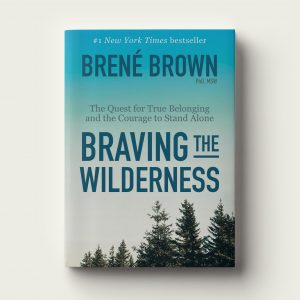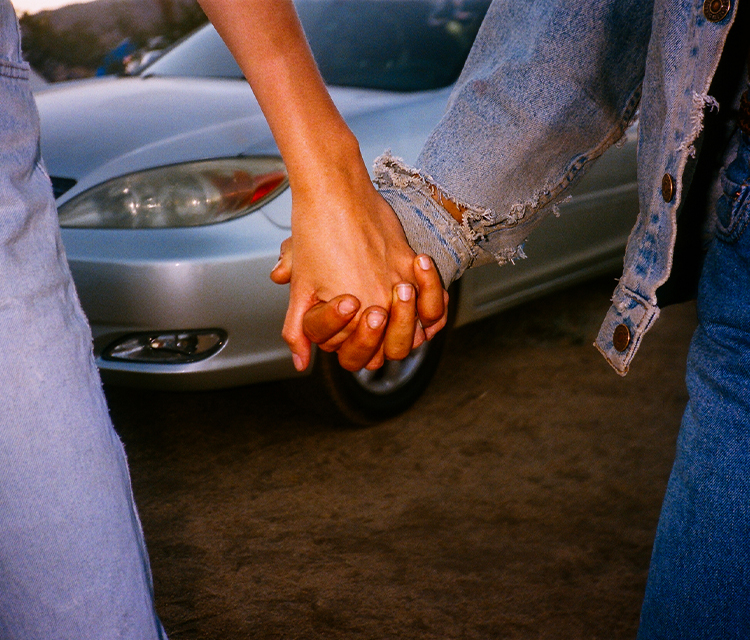Every page of Braving the Wilderness challenged me in unexpected ways. At some point my editor, Ben, laughed and said, “Maybe we should call it ‘How to piss off everyone in 150 pages.’”
I laughed. Kinda.

Braving the Wilderness is a call to courage.
A call to move closer to each other, because people are hard to hate close up.
A call to speak truth to bullshit. But be civil.
And to hold hands. With strangers.
While we are still in major heartbreak here in Houston, I’ve been so blown away by the kindness of strangers.
There’s a section in the new book that talks about “A Ministry of Presence”—it so perfectly describes what we’re seeing here right now. Read that excerpt below.
Also, I’m taking off for a crazy book tour next week (cue Willie Nelson’s “On the Road Again”). Order on Amazon and join us for Q&As from the road. If you order now, it normally delivers the next day!
Excerpted from Braving the Wilderness
Only holiness will call people to listen now. And the work of holiness is not about perfection or niceness; it is about belonging, that sense of being in the Presence and through the quality of that belonging, the mild magnetic of implicating others in the Presence. This is not about forging a relationship with a distant God but about the realization that we are already within God.
John O’Donohue
(Chapter Six: Hold Hands. With Strangers.)
Just recently I found myself in the overflow room of a church in a small Texas town. I was at the funeral for my good friend Laura’s father. There were no choir members or pianos in the overflow room, just a few hundred people in folding chairs watching the eulogies in the main church via a projector and computer screen. When we were asked to stand and sing one of his (and my) favorite hymns, “How Great Thou Art,” I wasn’t so sure how two hundred or so strangers could pull off singing an old hymn a cappella in a reception hall. But we did, and it was a holy experience.
Laura’s dad was a small-town hero who never met a stranger. All I could think in that moment was, He would have loved our messy voices and singing hearts. The neurologist Oliver Sacks writes, “Music, uniquely among the arts, is both completely abstract and profoundly emotional. . . . Music can pierce the heart directly; it needs no mediation.”
Funerals, in fact, are one of the most powerful examples of collective pain. They feature in a surprising finding from my research on trust. When I asked participants to identify three to five specific behaviors that their friends, family, and colleagues do that raise their level of trust with them, funerals always emerged in the top three responses. Funerals matter. Showing up to them matters. And funerals matter not just to the people grieving, but to everyone who is there. The collective pain (and sometimes joy) we experience when gathering in any way to celebrate the end of a life is perhaps one of the most powerful experiences of inextricable connection. Death, loss, and grief are the great equalizers.
My aunt Betty died while I was writing this book. When I think of her I think of laughing, camping, swimming in the Nueces River, driving to her ranch in Hondo, Texas, and our silent agreement that we would never discuss politics. I also think of the time when I was about seven years old and I begged her to let me go into the “card room” where the parents, grandparents, and oldest cousins were yelling, laughing, cussing, smoking, and playing Rook (our family’s favorite card game). I was stuck in the “kids’ room,” which was so boring. She held my cheeks in her hand and said, “I can’t let you go in there. Plus, trust me, you don’t want to see what’s in there. It ain’t pretty.”
Rather than holding a funeral, it was Betty’s wish that we come together for a family barbecue potluck in my cousin Danny’s backyard. She just wanted us to laugh and be together. Danny led us in prayer, we told funny stories, and Nathan played the guitar while Diana sang the “Ave Maria.” It was 90 degrees in the Texas Hill Country and you could barely hear the stories and music over the shrilling of the cicadas. I kept thinking, This is exactly what it means to be human.
This humanity transcends all of those differences that keep us apart. In Sheryl Sandberg and Adam Grant’s beautiful 2017 book about grief and courage, Option B, Sandberg tells a wrenching and wholehearted story about collective pain. Her husband, Dave, died suddenly while they were on vacation. Their children were in second and fourth grade. She writes, “When we arrived at the cemetery, my children got out of the car and fell to the ground, unable to take another step. I lay on the grass, holding them as they wailed. Their cousins came and lay down with us, all piled up in a big sobbing heap with adult arms trying in vain to protect them from their sorrow.”
Sandberg told her children, “This is the second worst moment of our lives. We lived through the first and we will live through this. It can only get better from here.” She then started singing a song she knew from childhood, “Oseh Shalom,” a prayer for peace. She writes, “I don’t remember deciding to sing or how I picked this song. I later learned that it is the last line of the Kaddish, the Jewish prayer for mourning, which may explain why it poured out of me. Soon all the adults joined in, the children followed, and the wailing stopped.”
An experience of collective pain does not deliver us from grief or sadness; it is a ministry of presence. These moments remind us that we are not alone in our darkness and that our broken heart is connected to every heart that has known pain since the beginning of time.
